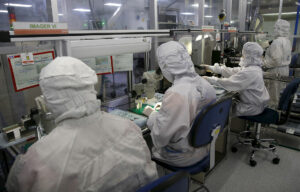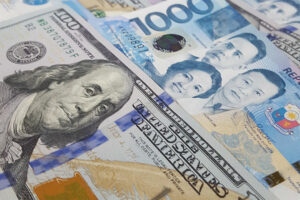THE PHILIPPINES is hoping the United States under the Trump administration will continue supporting the Luzon Economic Corridor (LEC), the Office of the Special Assistant to the President for Investment and Economic Affairs (OSAPIEA) said.
“We need to inquire from the Trump administration what their plans are for that. Although we are still very positive, we are still very hopeful,” Secretary Frederick D. Go, who heads OSAPIEA, told reporters last week.
“I think we have been a very good ally of the US, so I believe that they will reciprocate that with tangible economic benefits for our country,” he added.
The Luzon Economic Corridor is being undertaken via a trilateral commitment among the Philippines, US and Japan.
In April 2024, then-US President Joseph R. Biden, then-Japanese Prime Minister Fumio Kishida and Philippine President Ferdinand R. Marcos, Jr., launched a steering committee to drive infrastructure development in the LEC.
The initiative aims to enhance the connectivity of Luzon’s key economic areas — Subic Bay, Clark, Metro Manila and Batangas.
Mr. Go said other countries have also expressed interest in joining the initiatives for the Luzon Economic Corridor.
“While the US and Japan were leading the Luzon Economic Corridor, since that time the UK, Sweden, Korea, and Australia have all signified very serious intent,” he added.
Mr. Go also said funding for the feasibility study of one of the flagship projects of the Luzon Economic Corridor, the Subic-Clark-Manila-Batangas cargo railway, would not be affected by the US government’s pause on foreign aid funding.
After assuming office on Jan. 20, Mr. Trump ordered a 90-day pause on foreign aid to review if these programs are aligned with his “America First” policies.
However, Foundation for Economic Freedom President Calixto V. Chikiamco said the US might pull out of the Luzon Economic Corridor, which was initiated under Mr. Biden.
“It’s a Biden initiative. Most likely it will be scrapped by Trump,” he said in a Viber message.
Rizal Commercial Banking Corp. Chief Economist Michael L. Ricafort said the Luzon Economic Corridor is not consistent with Mr. Trump’s protectionist policies.
“This could partly run counter to Trump’s protectionist policies that encourage American and other global businesses to invest and create more jobs in the US,” he said in a Viber message.
He said Mr. Trump has been cutting costs in the US government, which could threaten US subsidies, grants, and assistance for its closest allies.
“Trump could reverse Biden’s other programs related to this. An exemption would be on US defense cooperation and related spending, which were signaled to be not adversely affected,” he added.
The Luzon Economic Corridor is the first project of the US-initiated Partnership for Global Infrastructure and Investment in the Indo-Pacific.
It seeks to accelerate investments in high-impact infrastructure projects such as railways, ports, clean energy, semiconductor supply chains and agribusiness.
Meanwhile, Finance Secretary Ralph G. Recto said he would support the reduction of tariffs on US-made vehicles under a free trade agreement (FTA) with the US.
“We’re now working on a free trade agreement with the European Union (EU)… We’re open to a free trade agreement also with the United States. I would bat for a reduction in tariffs on US vehicles,” Mr. Recto said in a CNN interview on Tuesday.
The Philippines is in talks with the EU for a free trade deal. Philippine government officials earlier said there appears to be “renewed interest” from the US on a bilateral FTA with the Philippines.
To recall, Mr. Trump during his first term met with then-President Rodrigo R. Duterte in Manila in 2017 and released a joint statement on the FTA deal and agreed to discuss it under the US-Philippines Trade and Investment Framework Agreement.
Mr. Recto said he proposed lower tariffs on US-made vehicles “knowing that President Trump is interested in protecting and promoting US auto makers.”
Mr. Recto reiterated that he is not worried about the implication of Mr. Trump’s aggressive tariff policies considering the Philippine economy is driven mostly by domestic consumption.
The Philippines is unlike China, Vietnam and its other Southeast Asian peers, which are more export-oriented, he said. “We have a trade deficit when it comes to goods. We have a robust BPO industry and we feel that that will continue.”
“In fact, they’re more interested in investing in the Philippines’ BPO industry,” he added.
US officials are studying global reciprocal tariffs. Mr. Trump has said he wants to impose tariffs on all countries that have tariffs on US goods.
He has also said he wants to slap 25% tariffs on imports of cars, pharmaceuticals and semiconductors. — Justine Irish D. Tabile and Aubrey Rose A. Inosante






